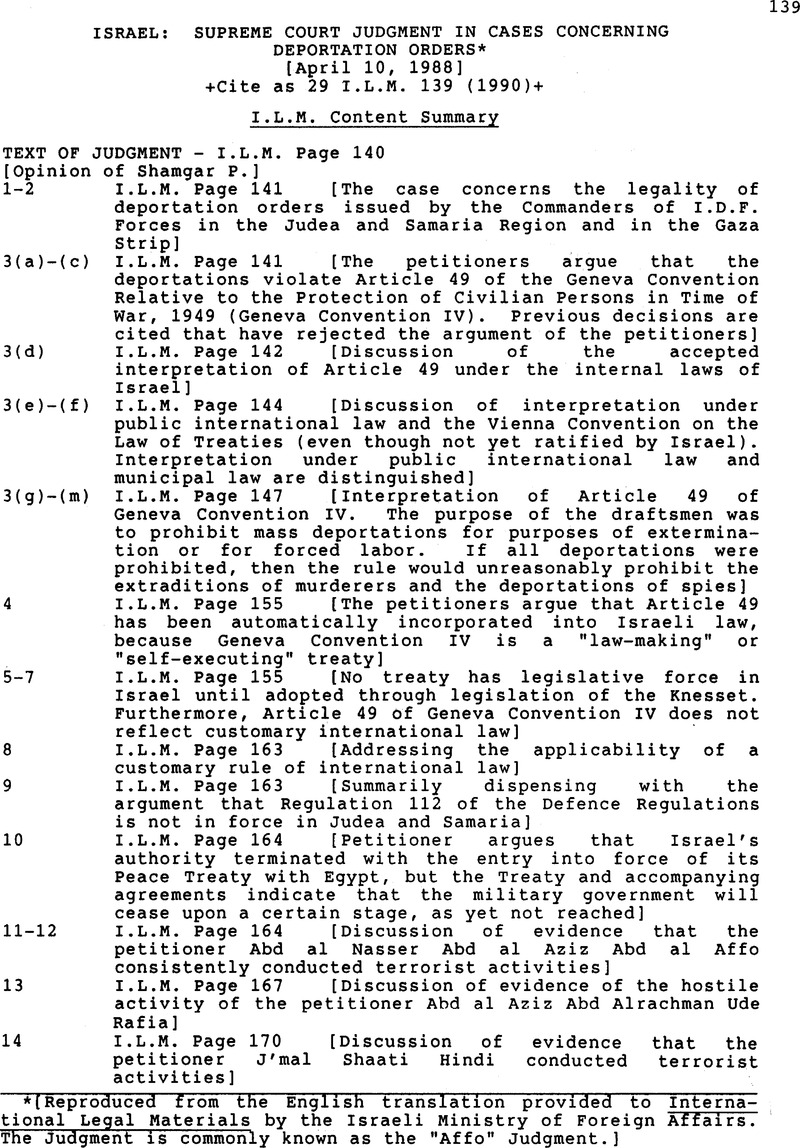Article contents
Israel: Supreme Court Judgment in Cases Concerning Deportation Orders
Published online by Cambridge University Press: 27 February 2017
Abstract

- Type
- Judical and Similar Proceedings
- Information
- Copyright
- Copyright © American Society of International Law 1990
References
* [ Reproduced from the English translation provided to International Legal Materials by the Israeli Ministry of Foreign Affairs. The Judgment is commonly known as the “Affo” Judgment.]
[1] See also the remarks of Justice Holmes in Towne v. Eisner, 245 U.S. 418, 425 (1918).
* Translator's note: The translation appears in the the judgment.
[2] Regarding the restrictive Interpretation see: Guggenheim,Lehrbuch des Volkerrechts (vol. 1,1947) 128 and Lauterpacht, H. “Restrictive Interpretation and the Principle of Effectiveness in the Interpretation of Treaties,“ 26 Brit. Y.B. Int'l L. (1949) 48, 49, 58, 80 Google Scholar. Regarding the interpretation which seeks to limit the setting of restrictions on states,see: D.P. O'Connell, International Law (London, vol. 1, 1965) 275, which refers, Inter alia, to the Mosul Case,P.C.I.J.,ser.b.no.12,p.25(1925).
[3] That is: They are not to be applied unless they express general principles of law recognized by civilized states: O'Connell, supra, at 276.
- 1
- Cited by


